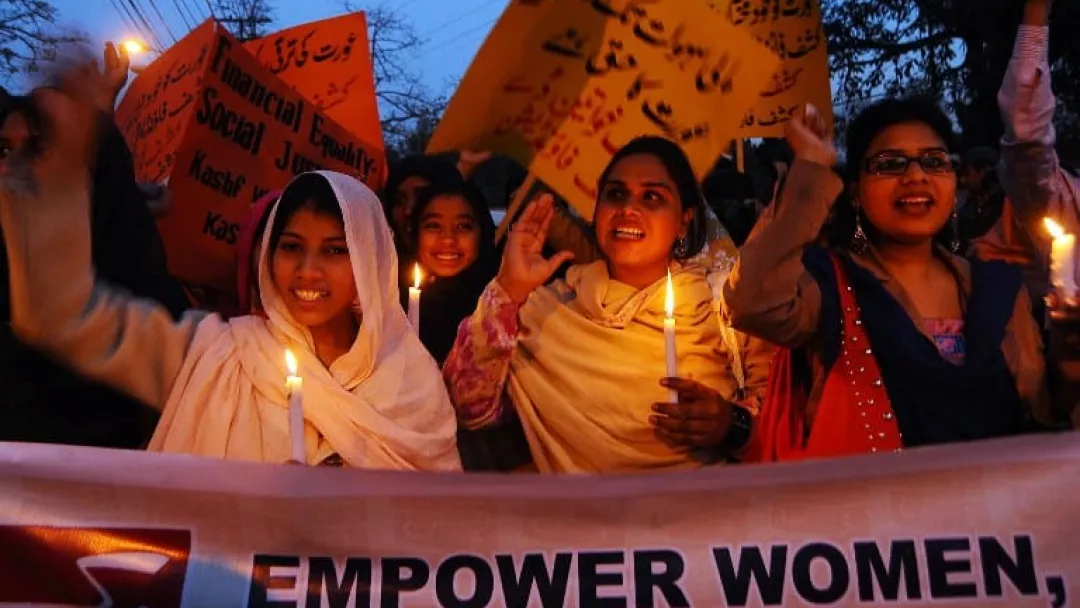ISLAMABAD: As the United Nations observes 16 Days of Activism against Gender-Based Violence, we take a look at Pakistan's efforts to combat digital violence against women.
The theme this year for the annual global campaign, which runs from November 25 through December 10, is “End Digital Violence against Women and Girls: Safe Spaces for All.”
Digital violence is a growing threat that disproportionately affects women and girls worldwide. Pakistan has responded with specific legislation, though implementation gaps remain.
Legal framework
Pakistan's primary tool for addressing online harassment is the Prevention of Electronic Crimes Act (PECA) of 2016, which criminalizes various forms of digital abuse. The law includes provisions against cyberstalking, unauthorized sharing of intimate images and cyber blackmail.
Section 24A of PECA specifically addresses non-consensual distribution of private images, carrying penalties of up to five years imprisonment and fines reaching Rs1 million ($3,600).
The Federal Investigation Agency's Cyber Crime Wing, established in 2007, handles complaints and investigations under PECA. The agency reported receiving 8,500 complaints from women facing online harassment in 2018 and 2019, though only 19.5% were investigated, according to testimony before a parliamentary committee.
Pakistan's Punjab Protection of Women against Violence Act of 2016 specifically defines violence to include cybercrime, acknowledging it as a form of abuse.
The FIA is required by law to submit biannual reports to parliament but has submitted only one report in four years, according to Human Rights Watch.
Recent case
In a recent application of the law, a Karachi court sentenced a man to six years in prison for sending explicit photos of a woman to her fiancé. The defendant, identified only as Anas, was arrested in September 2021 after the victim filed a complaint with the FIA. The court also imposed a fine of Rs90,000 ($318).
According to court documents, the victim had been in a relationship with Anas for four years and had shared intimate photos with him. When her family arranged her marriage to another man, Anas sent the photos to her fiancé.
Enforcement challenges
Despite the legal framework, women's rights advocates and journalists have raised concerns about inconsistent enforcement. In 2020, a group of prominent female journalists issued a statement condemning what they described as a coordinated campaign of online harassment, including threats of violence.
The FIA operates with approximately 500 staff members for a country of 34 million internet users. Until 2018, only two women staffed the cybercrime help desk, according to news reports.
Human rights organizations have also criticized PECA's defamation provisions, warning they can be misused to silence women.
16 Days of Activism
The 16 Days campaign, coordinated by the Center for Women's Global Leadership and supported by UN Women, addresses violence affecting nearly one in three women globally. This year's focus on digital violence reflects the growing recognition of online harassment as a serious threat.
The UN Office of the High Commissioner for Human Rights stated that there was an urgent need for survivor-centered responses and stronger legal protections. The campaign uses orange as its symbolic color, representing a future free from violence.



.jpg)
.jpg)

.jpg)